第23章 CHAPTER 2(8)
The equality of married persons before the law, is not only the sole modein which that particular relation can be made consistent with justice toboth sides, and conducive to the happiness of both, but it is the only meansof rendering the daily life of mankind, in any high sense, a school of moralcultivation. Though the truth may not be felt or generally acknowledged forgenerations to come, the only school of genuine moral sentiment is societybetween equals. The moral education of mankind has hitherto emanated chieflyfrom the law of force, and is adapted almost solely to the relations whichforce creates. In the less advanced states of society, people hardly recogniseany relation with their equals. To be an equal is to be an enemy. Society,from its highest place to its lowest, is one long chain, or rather ladder,where every individual is either above or below his nearest neighbour, andwherever he does not command he must obey. Existing moralities, accordingly,are mainly fitted to a relation of command and obedience. Yet command andobedience are but unfortunate necessities of human life: society in equalityis its normal state. Already in modern life, and more and more as it progressivelyimproves, command and obedience become exceptional facts in life, equal associationits general rule. The morality of the first ages rested on the obligationto submit to power; that of the ages next following, on the right of theweak to the forbearance and protection of the strong. How much longer isone form of society and life to content itself with the morality made foranother? We have had the morality of submission, and the morality of chivalryand generosity; the time is now come for the morality of justice. Whenever,in former ages, any approach has been made to society in equality, Justicehas asserted its claims as the foundation of virtue. It was thus in the freerepublics of antiquity. But even in the best of these, the equals were limitedto the free male citizens; slaves, women, and the unenfranchised residentswere under the law of force. The joint influence of Roman civilisation andof Christianity obliterated these distinctions, and in theory (if only partiallyin practice) declared the claims of the human being, as such, to be paramountto those of sex, class, or social position. The barriers which had begunto be levelled were raised again by the northern conquests; and the wholeof modern history consists of the slow process by which they have since beenwearing away. We are entering into an order of things in which justice willagain be the primary virtue; grounded as before on equal, but now also onsympathetic association; having its root no longer in the instinct of equalsfor self protection, but in a cultivated sympathy between them; and no onebeing now left out, but an equal measure being extended to all. It is nonovelty that mankind do not distinctly foresee their own changes, and thattheir sentiments are adapted to past, not to coming ages. To see the futurityof the species has always been the privilege of the intellectual elite, orof those who have learnt from them; to have the feelings of that futurityhas been the distinction, and usually the martyrdom, of a still rarer elite.
Institutions, books, education, society, all go on training human beingsfor the old, long after the new has come; much more when it is only coming.
But the true virtue of human beings is fitness to live together as equals;claiming nothing for themselves but what they as freely concede to everyoneelse; regarding command of any kind as an exceptional necessity, and in allcases a temporary one; and preferring, whenever possible, the society ofthose with whom leading and following can be alternate and reciprocal. Tothese virtues, nothing in life as at present constituted gives cultivationby exercise. The family is a school of despotism, in which the virtues ofdespotism, but also its vices, are largely nourished. Citizenship, in freecountries, is partly a school of society in equality; but citizenship fillsonly a small place in modern life, and does not come near the daily habitsor inmost sentiments. The family, justly constituted, would be the real schoolof the virtues of freedom. It is sure to be a sufficient one of everythingelse. It will always be a school of obedience for the children, of commandfor the parents. What is needed is, that it should be a school of sympathyin equality, of living together in love, without power on one side or obedienceon the other. This it ought to be between the parents. It would then be anexercise of those virtues which each requires to fit them for all other association,and a model to the children of the feelings and conduct which their temporarytraining by means of obedience is designed to render habitual, and thereforenatural, to them. The moral training of mankind will never be adapted tothe conditions of the life for which all other human progress is a preparation,until they practise in the family the same moral rule which is adapted tothe normal constitution of human society. Any sentiment of freedom whichcan exist in a man whose nearest and dearest intimacies, are with those ofwhom he is absolute master, is not the genuine or Christian love of freedom,but, what the love of freedom generally was in the ancients and in the middleages -- an intense feeling of the dignity and importance of his own personality;making him disdain a yoke for himself, of which he has no abhorrence whateverin the abstract, but which he is abundantly ready to impose on others forhis own interest or glorification.
I readily admit (and it is the very foundation of my hopes) that numbersof married people even under the present law (in the higher classes of Englandprobably a great majority), live in the spirit of a just law of equality.